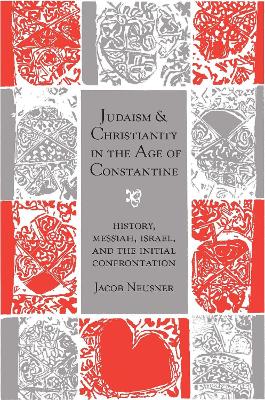With the conversion of Constantine in AD 312, Christianity began a period of political and cultural dominance that it would enjoy until the twentieth century. Jacob Neusner contradicts the prevailing view that following Christianity's ascendancy, Judaism continued to evolve in isolation. He argues that because of the political need to defend its claims to religious authenticity, Judaism was forced to review itself in the context of a triumphant Christianity. The definition of issues long discussed in Judaism - the meaning of history, the coming of the Messiah, and the political identity of Israel - became of immediate and urgent concern to both parties. What emerged was a polemical dialogue between Christian and Jewish teachers that was unprecedented. In a close analysis of texts by the Christian theologians Eusebius, Aphrahat, and Chrysostom, and of central Jewish works such as the Talmud of the Land of Israel, the Genesis Rabbah, and the Leviticus Rabbah, Neusner finds that both religious groups turned to the same corpus of Hebrew scripture to examine the same fundamental issues.
As Neusner demonstrates, the conclusions drawn in these texts shaped the dialogue between the two religions for the rest of their shared history in the West.
- ISBN10 0226576531
- ISBN13 9780226576534
- Publish Date 1 December 2007 (first published 6 October 1987)
- Publish Status Active
- Publish Country US
- Imprint University of Chicago Press
- Format Paperback
- Pages 262
- Language English
- URL http://wiley.com/remtitle.cgi?isbn=9780226576534
